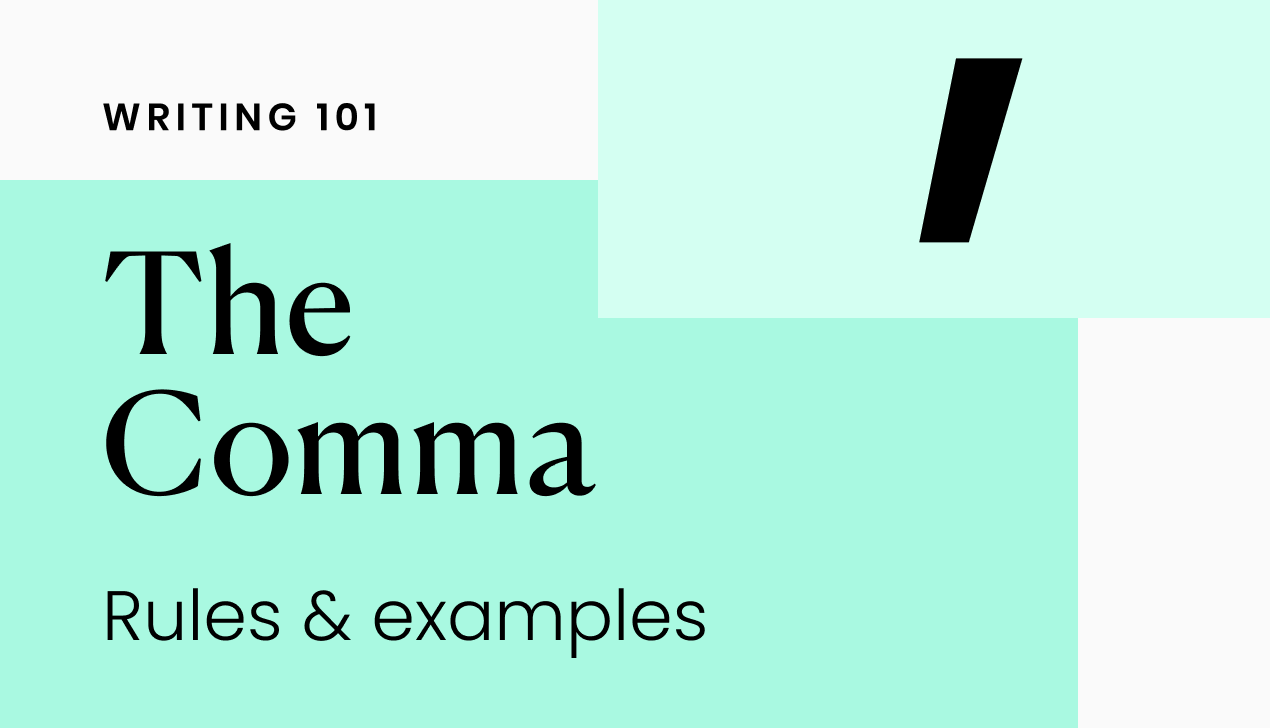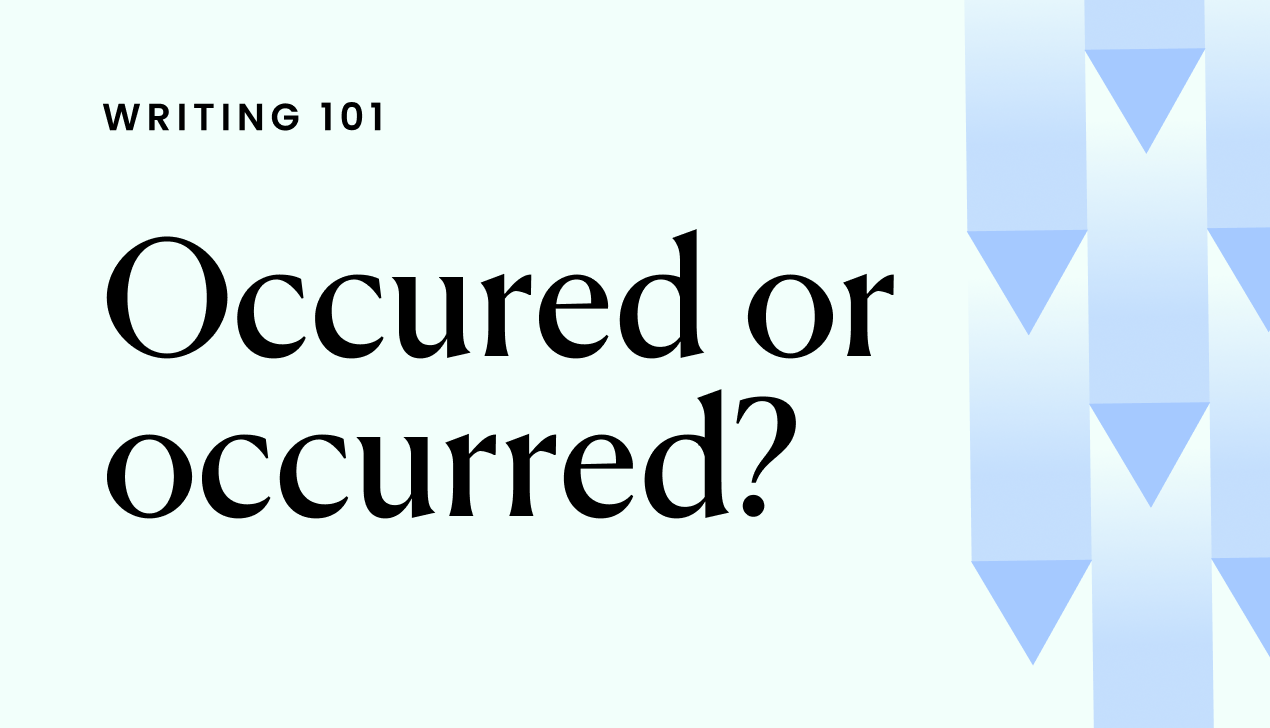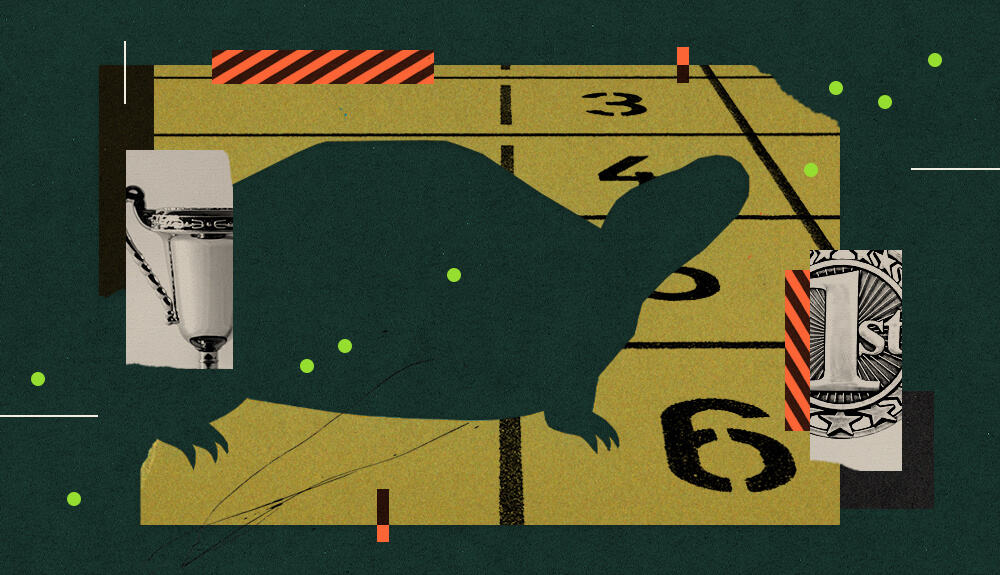Words at work
– 5 min read
A brief guide to capitalization rules
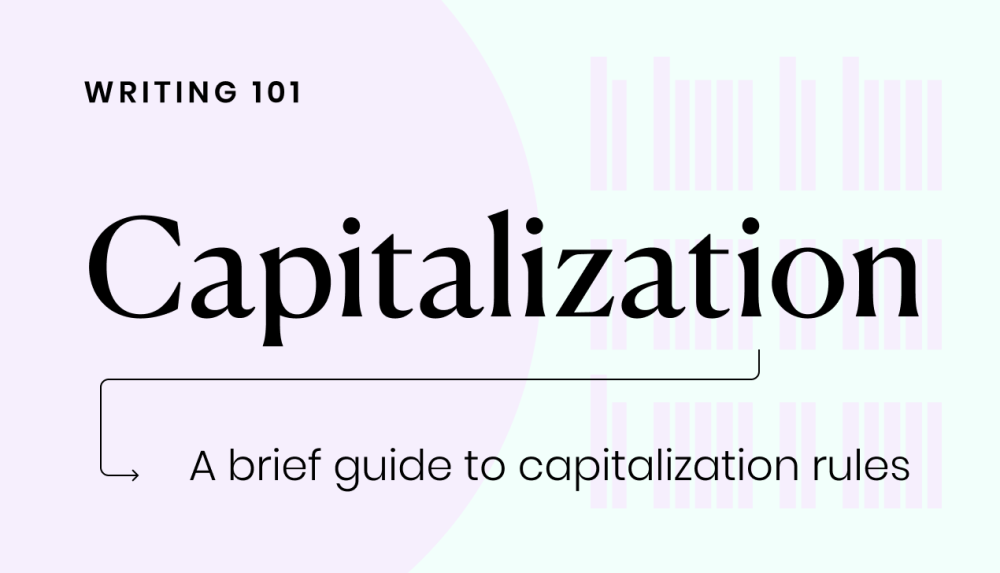
There are some capitalization rules that might seem like common sense, such as capitalizing the first word in a new sentence.
However, capitalization rules are more complex than they might seem on the surface.
In this post, we cover ten of the most common rules of capitalization. We’ll also share examples of each to help you understand when to use uppercase or lowercase in your writing.
What are the 10 rules of capitalization?
1. Capitalize the first word of a sentence
This is one of the easiest, most straightforward rules of capitalization. Whenever you start a new sentence, capitalize the first letter of the first word. Simple as that!
2. Capitalize proper nouns and names
A proper noun is a specific name for a person, place, or thing. These types of nouns should always be capitalized, no matter where they land in a sentence. Proper nouns include but aren’t limited to: companies, countries, cities, political parties, and religions.
Names should also be capitalized. That includes first, middle, and last names.
3. Capitalize the majority of titles
Capitalization rules for titles can vary from style guide to style guide. As a rule of thumb, you should capitalize the first word of a title, verbs, adjectives, nouns, and of course, proper nouns. This leaves prepositions, articles, and conjunctions in lowercase.
Pro Tip: You should also capitalize someone’s title – like Doctor or Judge – if you directly address them, even if you leave out their name.
4. Capitalize events and periods
You will need to capitalize periods, eras, and specific events. However, centuries and century numbers should not be capitalized.
5. Capitalize “I” as a pronoun
We’re all used to seeing words like iPhone, iPad, and iMac by now. You don’t have to capitalize the “i” in these words. It would look strange if you did and wouldn’t be grammatically correct. However, if the “I” is a pronoun, then it should always be uppercase.
6. Capitalize any locations and direct addresses
When a direction is part of a name, then you should capitalize it. For example, South Bend or Northern California. However, if it’s just a direction and not part of a name, then it shouldn’t be capitalized, like “turn east at the stop sign.”
7. Capitalize family relationships
When you use a word to indicate a family relationship, it should be capitalized if it’s used as a proper noun. For instance, “Grandpa” or “Uncle Bob.” However, if you aren’t referring to that person by name, then it wouldn’t need to be capitalized. For example, “my grandpa” or “our uncle.”
8. Capitalize months, holidays, and days
The names of months, holidays, and days are considered to be proper nouns. This means they need to be capitalized.
Knowing this capitalization rule, a lot of people mistakenly capitalize the names of seasons. But seasons like winter and summer should NOT be capitalized. They are not categorized as proper nouns.
9. Capitalize trademark names
Trademark and brand names are typically seen as proper nouns. This means you’ll need to capitalize them.
10. DON’T capitalize after a colon
The final rule on our list is a little different. This one tells you when NOT to capitalize. In general, you shouldn’t capitalize the word following a colon. You aren’t starting a new sentence, so there’s no need for it.
However, there is an exception to this rule. If the first word following a colon is a proper noun, then it needs to be capitalized.
Capitalization rules and examples
The best way to learn when to capitalize is by example.
Here’s are correct and incorrect ways to use capitalization for the rules above:
Example #1. Capitalize the first word of a sentence
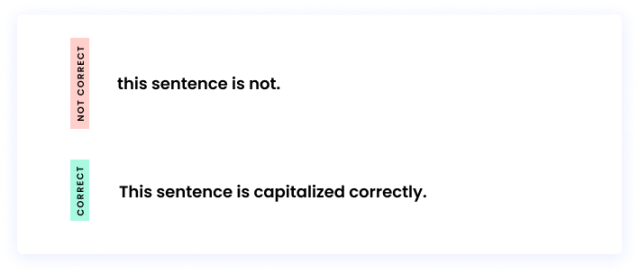
In this example, the incorrect sentence should start with a capital letter.
Example #2. Capitalize proper nouns and names
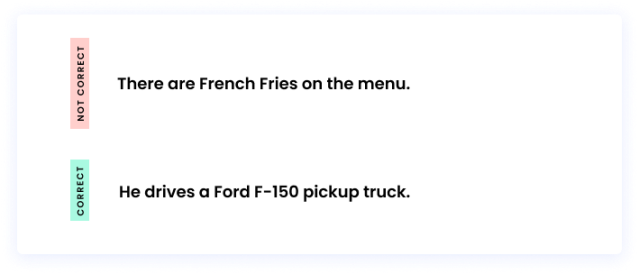
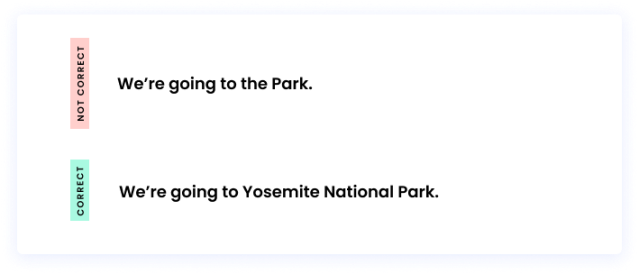
In both of the incorrect examples above, the capitalized noun should have been lowercase. This is because they are common nouns instead of proper nouns.
Example #3. Capitalize the majority of titles
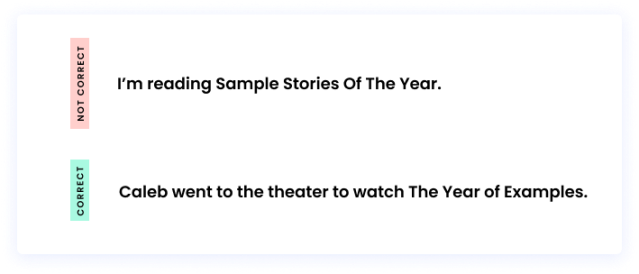
Articles, prepositions, and conjunctions shouldn’t be capitalized in titles.
Example #4. Capitalize historical events and time periods
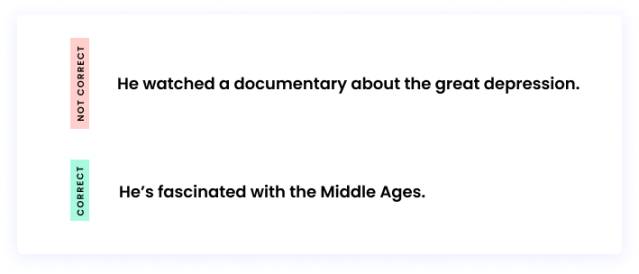
Example #5. Capitalize “I” as a pronoun
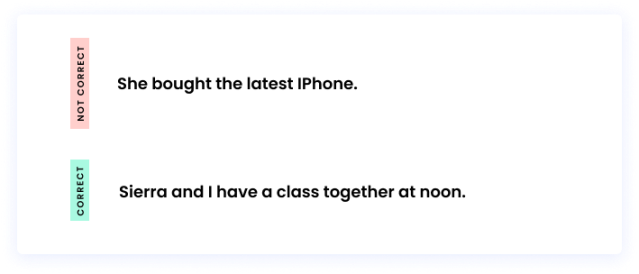
The “i” in the incorrect example is part of a trademark that begins with a lowercase letter. It’s not a pronoun. It shouldn’t be capitalized.
Example #6. Capitalize any locations and direct addresses
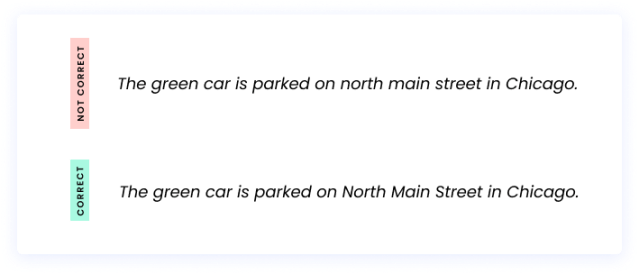
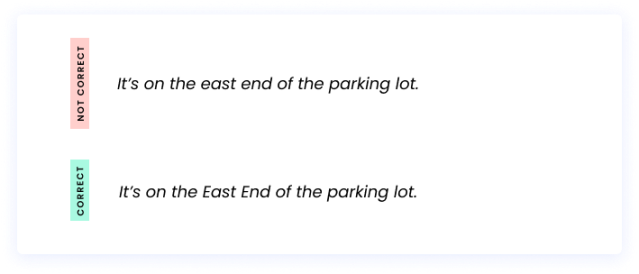
Pro Tip: Directions that aren’t part of a name do not need to be capitalized.
Example #7. Capitalize family relationships
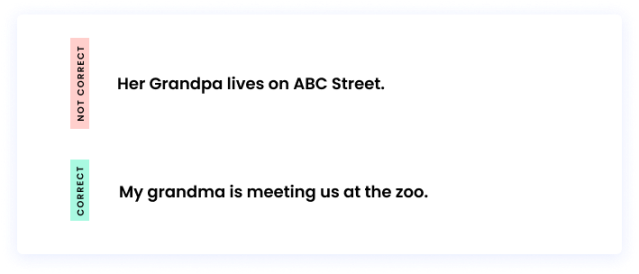
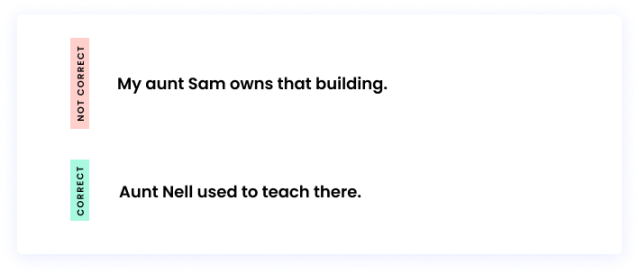
Example #8. Capitalize months, holidays, and days
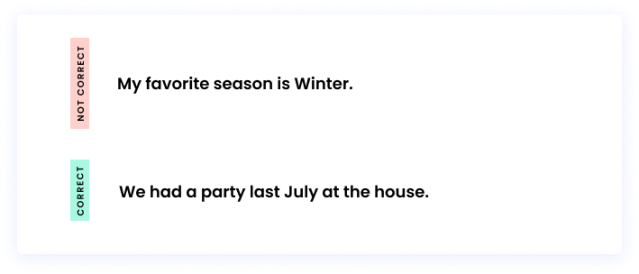
Seasons do not need to be capitalized.
Example #9. Capitalize trademark names
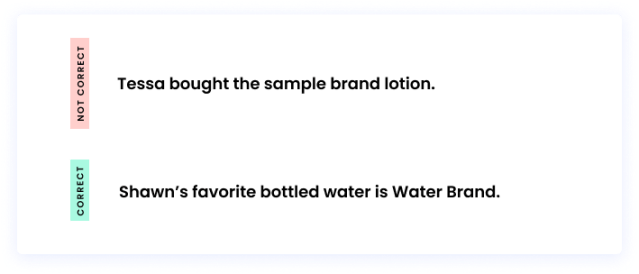
Example #10. DON’T capitalize after a colon
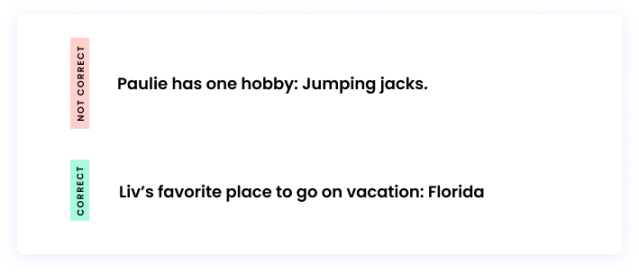
Normally, you wouldn’t capitalize a word after a colon. However, if the first word is a proper noun, then you should.
***
In sum, the best way to remember the rules of capitalization is to keep writing. Practice and you’ll get the hang of it. You can always keep the rules on hand to refer back to as needed.


